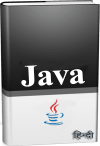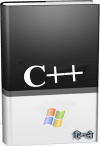Description
वर्तमान समय में Server Side Scripting Language के रूप में मूल रूप से PHP, JSP व ASP.NET को Use किया जाता है, जबकि PHP को सर्वाधिक इसलिए उपयोग में लिया जाता है, क्योंकि इसे सीखना काफी आसान है और यदि आपको C Programming Language का थोडा सा भी ज्ञान है, तो आप बिना किसी परेशानी के PHP सीख सकते हैं व Server Side Scripting के लिए उपयोग में ले सकते हैं।
ये पुस्तक मूल रूप से Core PHP के लगभग सभी Concepts व Contents को Cover करती है, साथ ही इसमें हमने OOPS आधारित Advance PHP Concepts को भी काफी Detail से Discuss किया है, ताकि यदि आप किसी PHP Framework जैसे कि Symfony, Code Ignitor, YII, आदि को Use करते हुए Web Application Develop करना चाहें, तो इन Object Oriented Frameworks की Working को बेहतर तरीके से समझते हुए उन्हें उपयोग में ले सकें। जबकि यदि आप PURE CORE PHP का प्रयोग करते हुए अपना Web Development करना चाहें, तो ये पुस्तक आपके लिए पर्याप्त है।
हालांकि यदि अापकी Core PHP पर अच्छी पकड नहीं होती, तो आप किसी भी PHP Framework को उपयुक्त तरीके से Use करते हुए अपना Web Development नहीं कर सकते, क्योंकि कहीं न कहीं आपको अपने Use किए जा रहे Framework को Modify करते हुए अपनी किसी Specific Requirement को पूरा करना ही पडता है और आप केवल उसी स्थिति में ये Modification Perform कर सकते हैं, जबकि आपको Core PHP का उपयुक्त ज्ञान हो।
इसलिए यदि अाप PHP Scripting Language में अपना Career बनाना चाहते हैं, Core PHP को अच्छी तरह से सीखना आपके लिए Compulsory रूप से जरूरी है और आपकी इस जरूरत को ये पुस्तक काफी बेहतर तरीके से Fulfill करती है, जिसमें निम्न Contents को Include किया गया है:
Index of Contents
Web Development
Web Development Sequence and Used Technologies
PHP – History and Introduction
Types of Programming Languages
Environment Setup
Creating First PHP Script
Setting PHP Interpreter Path
Interpreting First PHP Script
PHP Fundamentals
<?php … ?>
Output Statements
print() Statement
echo() Statement
Case Sensitive
Statements and Semicolons
Block Statement
Whitespace and Line Breaks
Comments
“C” Style Comment or Multiline Comment
“C++” Style Single Line Comment
Unix Shell Style Single Line Comment
Literals
Identifier
Variables
Constants
Function Names
Class Names
Keywords
Data Types
Scalar Data Types
Compound Data Types
Special Data Types
Variable
Variable Initialization and Assignment Types
Variable Variables
Expressions
Operand
Operators
Control Statements
Types Of Control Statement
Conditional Statements
Un-Conditional Statements
Iteration – Loops
Jumping Statements
Arrays
Associative Array
Multidimensional Array
Array Related Functions
Function
Built-In or Library Function and User Defined Functions
Function Nesting
Calling Function and Called Function
Function Creation or Function Definition
Types of User Defined Functions
Default Arguments
Returning Multiple Values
Variable Number of Arguments
Variable Functions
Anonymous Functions
Recursive Functions
Variable Scope and Lifetime
User Defined Function Library
File Inclusion Statements
String
String Printing Statements
String Length
String Comparision
String Case
String Cleaner
String Padding
Characters and Words Counting
Character <=> ASCII Code
Array <=> String
Hexadecimal <=> Binary
Searching and Manipulating
Miscellaneous String Functions
Type Casting
Converting to Boolean
Converting to Integer
Converting to Float
String Conversion to Numbers
Converting to String
Converting to Array
Converting to Object
Converting to Resource
Converting to NULL
Converting to Binary
Conversion Functions
floatval() Function
doubleval() Function
intval() Function
strval() Function
Testing Functions
isset() Language Construct
empty() Language Construct
unset() Function
is_ Functions
PHP Character Functions
Date and Time
Unix Timestamp
PHP Date and Time Library
Summary
Object Oriented PHP
Object Oriented Programming Concepts
Encapsulation
Inheritance
Polymorphism
Abstraction
Class
Object
Access Scope Specifier
Initializing Data Members
Scope Resolution Operator ( :: )
Constant Data Members
Constructors
Destructors
Static Class Members
Object Cloning
PHP Overloading
__set() Method
__get() Method
__isset() Method
__unset() Method
__call() Method and __callStatic() Method
Inheritance
Method Overriding
protected Scope Access Specifier
Inheritance and Constructors
Abstract Class
Final Class
Interface
Autoloading Objects
Traits
Precedence of Methods
Multiple Traits
Conflict Resolution
Changing Method Visibility
Traits in Trait
Abstract Traits
Static Trait Members
Static Methods
Trait Properties
Type Hinting
Object Iteration
Object Serialization
Serialization Format
Magic Methods
__toString() Method
__sleep() and __wakeup() Methods
__invoke() Method
__set_state() Method
Late Static Binding
instanceof Keyword
Object / Class Functions
class_exists() Function
get_class() Function
get_class_methods() Function
get_class_vars() Function
get_declared_classes() Function
get_object_vars() Function
get_parent_class() Function
interface_exists() Function
is_a() Function
is_subclass_of() Function
method_exists() Function
class_alias() Function
get_called_class() Function
get_declared_interfaces() Function
get_declared_traits() Function
property_exists() Function
trait_exists() Function
Function Handling Function
Callback Functions
Namespaces
Creating Namespaces
Sub-Namespace
Using Namespace
PHP Rules for Accessing Namespaces
Exception Handling
Default Constructor
Methods
User Defined Exception Class
Multiple catch Block
Summary
PHP Web Facilities
HTTP Basics
PHP Super Global Variables
$COOKIE Global Array
$_GET Global Array
$_POST Global Array
$_FILES Global Array
$_ENV Global Array
$_SERVER Global Array
Processing Forms
Methods
Parameters
File Inclusion
Self Processing Pages
Multivalve Parameters
$_SERVER – Server Information
SERVER_SOFTWARE Key
SERVER_NAME Key
SERVER_INTERFACE Key
SERVER_PROTOCOL Key
SERVER_PORT Key
REQUEST_METHOD Key
PATH_INFO Key
PATH_TRANSLATED Key
SCRIPT_NAME Key
QUERY_STRING Key
REMOTE_HOST Key
REMOTE_HOST Key
AUTH_TYPE Key
REMOTE_USER Key
CONTENT_TYPE Key
CONTENT_LENGTH Key
Setting Response Headers
Different Content Types
Downloadable File
Uncatchable File
Redirection
Page Expiration
Maintaining State
Cookies
Sessions
File Management System
Data Organization
Working with Files
Opening a File – fopen() Function
Closing a File – fclose() Function
Writing to File
Navigation in File
Reading from File
Formatted File Writing and Reading
Remote Data Sources
allow_url_fopen
allow_url_include
safe_mode
Creating Socket Connection
Sending Request Message to Remote Server over Socket
Receiving Response Message from Remote Server over Socket
PHP File System Related Functions
Path Related Functions
Size Related Functions
File Related Time Functions
Reading Directory Contents
General Functions
Shell Command Functions
Dynamic Website
MVC Pattern
Database Fundamental
Primary Key
Foreign Keys
MySql with phpMyAdmin
MySql Data Types
Datatype Attributes
MySql Storage Engines
Using MySQL with PHP
Establishing Connection between MySQL and PHP
Executing SQL Queries on MySQL through PHP
Closing the Connection
Retrieving Query Results from MySQL Database
Database Security
mysqli_num_rows() Function
Updating MySQL Records with PHP
PHP with MySQL in Detail
Connection with Database
Interaction with Database
Parsing Query Results
Working with Prepared Statements
HTML Related Special Functions
addcslashes() Function
stripcslashes() Function
addslashes() Function
stripslashes() Function
htmlspecialchars() Function
htmlspecialchars_decode() Function
htmlentities() Function
html_entity_decode() Function
nl2br() Function






Kuldeep Mishra –
Very nice and easy to follow ebook. Even DEMO have approximately more than 100 easy to understand pages to read.